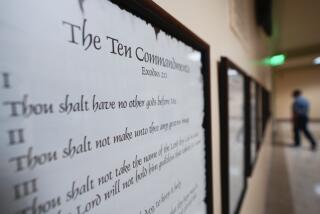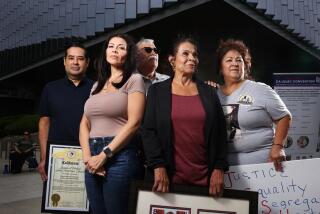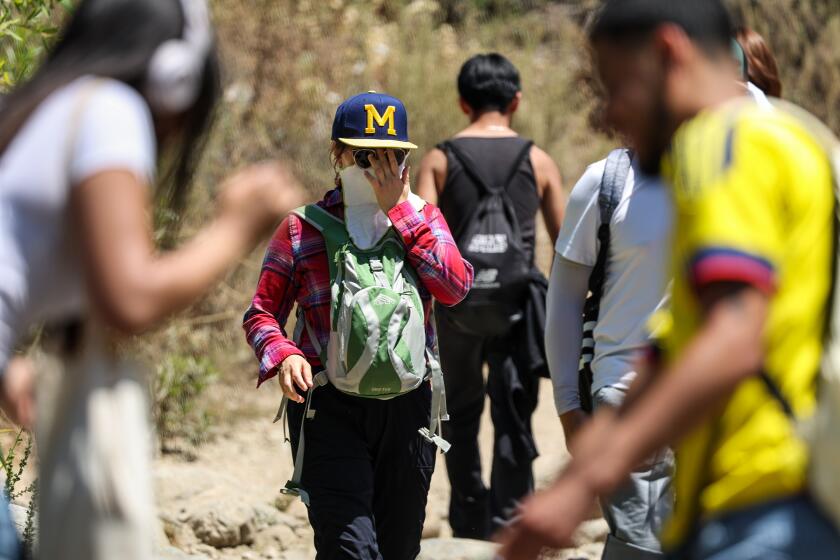San Diego group’s lawsuit alleges state put Aztec prayer in ethnic studies curriculum

A San Diego rights group and three San Diego parents are suing the California Department of Education for allegedly including an Aztec prayer in its model ethnic studies curriculum.
The Californians for Equal Rights Foundation, which also is fighting local school districts for including what it calls critical race theory in their curriculums, claimed in a lawsuit Friday that the state is violating the Establishment Clause of the state constitution, which prohibits the state from supporting a religion.
“Our clients have a religious objection to the Aztec prayer and they do not want their children chanting the Aztec prayer, being asked or pressured to do so, or risking ostracism if they refuse,” wrote Robert Weisenburger, one of the plaintiffs’ attorneys, in a letter to the state schools superintendent on Aug. 26.
The lawsuit, filed in San Diego County Superior Court, calls for the state to remove the alleged Aztec prayer from its model ethnic studies curriculum, which is nonmandatory.
A spokesman for the Education Department declined to comment Friday, saying the agency’s lawyers have not yet reviewed the suit.
The lawsuit takes issue with words of affirmation and a chant that the state’s ethnic studies curriculum encourages schools to use. The affirmation is based on In Lak Ech, a Mayan philosophy that means, “You are my other me.”
The state curriculum includes a reference to a poem that playwright Luis Valdez wrote about In Lak Ech: “You are my other me, if I do harm to you, I do harm to myself, if I love and respect you, I love and respect myself.” The poem is frequently included in ethnic studies programs.
Some ethnic studies teachers say they use In Lak Ech in class as a greeting, not a prayer, to remind students to show love and respect for one another, which is one of the goals of ethnic studies.
The curriculum also includes a longer chant based on In Lak Ech and the Aztec concept of Nahui Ollin, also called the Four Movements, which also has been used in ethnic studies programs.
Nahui Ollin consists of four concepts: self-reflection, knowledge, action and transformation. Those four concepts are represented by names of four Aztec deities, said Roberto Cintli Rodríguez, an emeritus associate professor of Mexican American Studies at the University of Arizona.
The names of the four deities are included in the chant, along with the name of a fifth deity, the lawsuit says.
The lawsuit argues that the chant constitutes a prayer because it praises the Aztec deities by invoking their names, asking for intercession and showing gratitude.
Rodríguez said Nahui Ollin is a concept, not a prayer, similar to the concept of the four elements, for example.
“Nobody’s being forced to kneel and pray,” said Rodríguez.
The lawsuit also takes issue with an Ashe affirmation in the state’s curriculum. Ashe is a concept from the Yoruba people of Nigeria that means the power to make things happen, to effect change. The lawsuit argues it is a prayer.
In recent months, the Californians for Equal Rights Foundation has been fighting what it says is critical race theory in K-12 schools, including in the San Diego area. Many school districts have responded that ethnic studies are not necessarily the same as critical race theory.
Critical race theory is the study of how racism is embedded in legal institutions and other aspects of society. Many opponents of teaching critical race theory deny that institutional racism exists in the U.S. and claim that critical race theory is racist itself because it labels people by their race.
Supporters of teaching the concept say institutional racism is a fact and that the country can’t fix its problems without talking about the history of race.
The law firm behind Friday’s lawsuit, LiMandri & Jonna, also filed suit in July to try to reverse a San Diego high school’s name change from Junipero Serra High to Canyon Hills. The law firm argued that the name change unfairly “canceled” Serra, a controversial Catholic priest who established California’s mission system to convert and assimilate Native Americans into Spanish culture.
The firm also argued then that the removal of Serra’s name also violated the state Constitution’s Establishment Clause by giving preferential treatment to Indigenous spiritual beliefs over Christianity.
More to Read
Start your day right
Sign up for Essential California for news, features and recommendations from the L.A. Times and beyond in your inbox six days a week.
You may occasionally receive promotional content from the Los Angeles Times.






